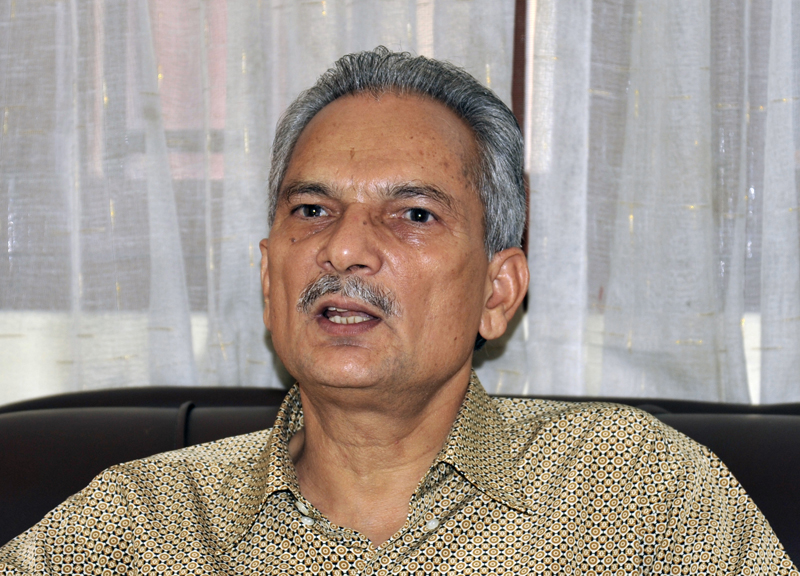

KATHMANDU: Former Prime Minister Baburam Bhattarai has sharply criticized the government’s recent move to construct the Budhigandaki Hydropower Project under a public-private partnership (PPP) model, calling it the final blow to a national dream that had already been under attack since 2074 B.S. (2017).
In a strongly worded social media post, Bhattarai accused the Oli-led government of delivering the “final beheading” of the project through the 2082/083 B.S. (2025/26) budget announcement, which declared the project would now proceed under a PPP framework, as outlined in point 224 of the budget statement.
Bhattarai has long championed the Budhigandaki project as a transformative, game-changing infrastructure initiative for Nepal’s economy and energy independence.
He pointed out that the dismantling of the project had, in fact, begun during the Prachanda-led government in 2017, which he said had taken the first steps to weaken and undermine the original vision by metaphorically “drawing the sword at its throat.”
According to him, the current decision merely completes what was already set in motion by earlier political leadership, which failed to uphold the project’s national character and strategic importance.
Designed as a 1,200 MW reservoir-based hydropower plant, Budhigandaki was seen as a vital pillar for Nepal’s future energy self-sufficiency.
Bhattarai argued that converting the project into a PPP venture opens the door to privatization and foreign control, eroding public ownership and undermining national interest.
He emphasized that such a move disregards the profound sacrifices made by thousands of residents in Gorkha and Dhading districts, who gave up their homes, land, and heritage to make way for the project’s implementation.
Calling the decision both anti-people and anti-national, Bhattarai also criticized the lack of transparency and democratic process behind the shift in policy.
He said such a significant departure from the project’s original model should have been deliberated openly in Parliament and among stakeholders.
He further argued that Nepal does not lack the financial resources to build the project through state leadership, citing domestic funds such as the Employee Provident Fund, the Citizens Investment Trust, and possible concessional loans as viable options.
Bhattarai issued a strong appeal to the people of the affected areas and to concerned citizens across the country to resist what he termed a betrayal of public trust and national ambition.
He called for collective action to oppose the PPP move and preserve the project’s integrity as a fully government-owned national asset.
As the controversy over Budhigandaki’s future deepens, Bhattarai’s remarks have reignited political debate and raised renewed questions about the state’s commitment to long-term strategic planning and the protection of national resources from creeping privatization.